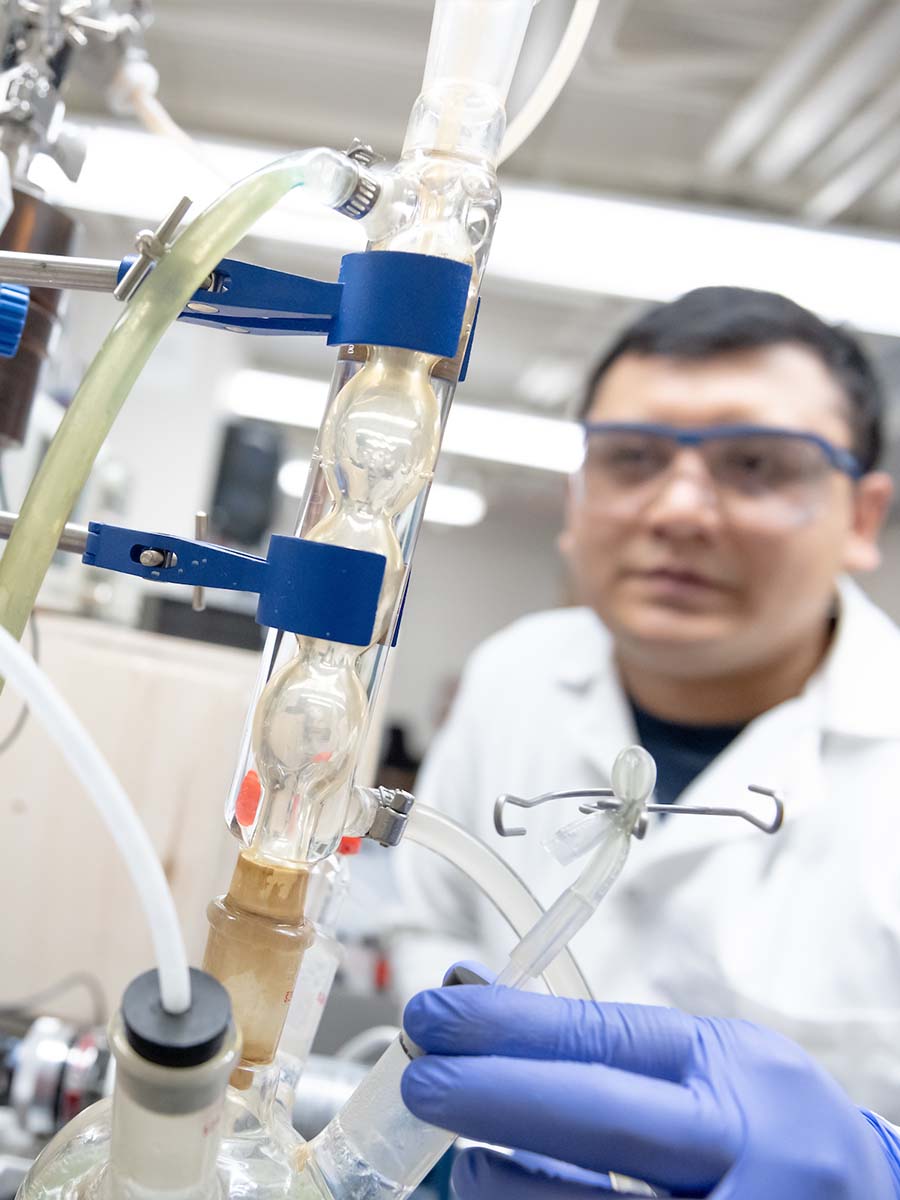New Opportunities for a Greener World
Building Better Fertilizer
Bishal Thapa is researching an alternative to the complex chemical procedures needed to create synthetic nitrogen fertilizers.
International Student Researches Natural Fertilizer Production
Bishal Thapa talks to his family on the phone regularly, but he hasn’t been home in five years.
“My parents probably won’t even recognize me,” said the biological engineering and agricultural engineering graduate. “I’ve grown so much, personally and professionally. I have seen things from a different culture and been able to see the world in a different way. I became a better person coming to college, not just a better researcher.”
An international student from Nepal, Thapa got involved in research during his freshman year. Between national and regional pitch competitions and grants, he has earned more than $20,000 to fund his research and pay for his college education.
“In high school, class was only about preparing you for an exam,” he said. “At U of I, the focus was more on application and trying new and different things and exploring new opportunities – like research. I learned getting your feet wet is important. And if you don’t like something, you’re not stuck.”
When Assistant Biological Engineering Professor Sarah (Xiao) Wu presented her research project to build better fertilizer production processes for agriculture, Thapa said he immediately saw the connection between her work and the world’s dependence on sustainable agriculture to help mitigate climate change. It took one email before the two were working regularly one-on-one.

Their research offers an alternative to the complex chemical procedures needed to create synthetic nitrogen fertilizers. Nitrogen is a nutrient that plants need to thrive. It can be naturally produced by bacteria in soil or artificially added to soils from ammonia-based fertilizers. According to the U.S. Energy Information Administration, about 90% of the ammonia produced worldwide is used in fertilizer to sustain food production, which consumes about 1.2% of the world’s total energy annually. That makes ammonia synthesis the largest carbon dioxide emitting process in the chemical industry, something Thapa and Wu want to change.
At U of I, the focus was more on application and trying new and different things and exploring new opportunities – like research. Bishal Thapa ’21, Biological Engineering
Thapa and Wu are naturally creating nitrogen fertilizer by breaking down air and water molecules with electricity, a process that doesn’t produce carbon dioxide. This unique process uses a reactor to electrically charge molecules into a plasma state, making these atoms a thousand times more reactive than those produced through traditional processes. The molecules’ reactivity allows for higher nitrogen production rates on a small, individual scale, making greener fertilizer production processing on-site possible for local farmers using readily available resources.
“Food production is ever increasing, and agriculture needs to keep up with demand,” Bishal said. “Replacing harsh chemical-based processes in agriculture allows us to meet these needs, keep ourselves fed and keep our planet healthy to continue to provide for us.”

Article by Alexiss Turner, Marketing and Communications Manager, College of Engineering.
Photos by Melissa Hartley, Creative Services.
Video by Will Knecht and Kara Billington, Creative Services.
Published in May 2022.








